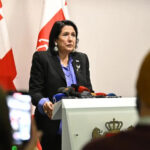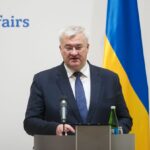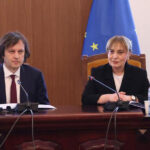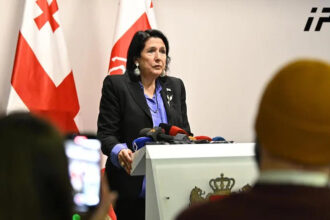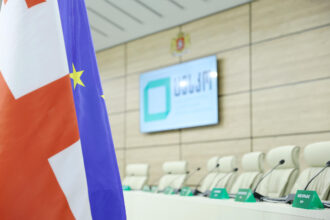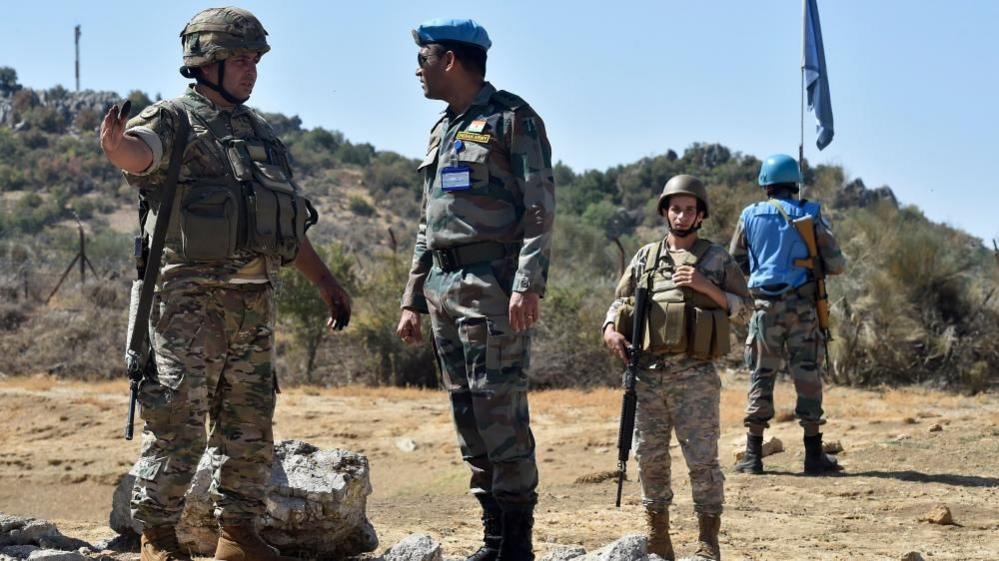* Published 15 October 2020
Tensions have escalated between Israel and the UN in recent days over the peacekeeping operations in Southern Lebanon – despite the fact that the confrontations are rooted in years of mistrust.
In the latest standoff the head of UN Peacekeeping Operations rejected on Monday a request by Israeli Prime Minister Benjamin Netanyahu that the forces known as Unifil be withdrawn from “combat zones”.
The UN force was created in 1978, after Israel invaded southern Lebanon. Its role was boosted in 2006, after a war between Israel and Hezbollah in that year.
I have filmed UN peacekeepers patrolling a 120 km (75 mile) “Blue Line”, the UN-recognised border that separates Israel from Lebanon. I’ve also seen the dangerous demining work in southern Lebanon where Unifil has destroyed over 51,000 mines and bombs left behind after previous wars.
But Israel accuses UNIFIL of failing miserably in another of its key responsibilities. UN Security Council Resolution No. 1701, which ended 2006’s war, required the UN to create a zone in southern Lebanon that was free of all armed forces except those of the Lebanese Army.
In a recent post on social media, Israeli cabinet minister Eli Cohen said: “The UN is an ineffective organization and UNIFIL a useless force. They failed to enforce Resolution 1701, failed to stop Hezbollah establishing themselves in southern Lebanon.”
Israel accuses Unifil that it turned a blind-eye to Hezbollah’s extensive regrouping, and rearming as the Iranian-backed Shia organization grew into a formidable combat force – bigger than the official Lebanese Army. Hezbollah has been designated as a terrorist organization by Israel, the UK and US, among others.
According to the pro Israel pressure group UN Watch, UN Watch claims that Unifil “didn’t do anything” because “Hezbollah were digging tunnels to invading Israel, kidnapping & attacking Israeli civilians…and embedding missiles into civilian homes.”
UN Watch and Israel’s Government Media Office have published several posts over the past few days claiming that Hezbollah was able to operate free and in clear view of UN bases and post along or near the Blue Line.
After Israeli troops crossed into Lebanon, they discovered tunnels, heavy weapons and equipment used to prepare an attack on Israel.
Benjamin Netanyahu, a belligerent Benjamin Netanyahu in a video message directed directly at the UN secretary general, stated that Israel demands that Unifil forces leave conflict areas in southern Lebanon.
The Israeli Prime Minister urged Antonio Guterres to not allow Hezbollah use UN peacekeepers to “human shields”. He also said that the secretary general’s refusal of evacuating the Unifil soldiers made them “hostages of Hezbollah… putting their lives and those of our [Israeli] troops in danger”.
* Published 3 Days Ago
Israel has been widely criticized after five Unifil peacekeepers suffered injuries following the ground invasion of 1 October.
In several incidents, Israeli fire has struck clearly marked and unmistakable Unifil base. In one case, Israeli tanks forced their entry into a Unifil compound after they initially refused to leave.
Israel has given explanations for these incidents, but says that the only way to prevent a repeat is for the Unifil troops to leave the area.
This has been met by a firm “No”.
Unifil’s spokesperson said that the Israeli military “deliberately” fired on its positions, and 40 nations that provide troops to Unifil stated last week that they “strongly condemned recent attacks” against the peacekeepers.
Pascale Baeriswyl, UN Ambassador from Switzerland, said that the UN Security Council meeting in New York “also urged all parties to respect safety and security of UN personnel and UN premises”, as well. She added: “They reaffirmed their support for Unifil, underscoring the role it plays in supporting regional stabilty.”
UN bodies are also trying to hold Israel accountable in Gaza, where Israeli troops have been involved for the past week in a stepped-up offensive to drive the remaining Hamas fighters out of northern areas, including Jabalia Refugee Camp.
Israel Defense Forces (IDF), according to their statement, have ordered thousands of civilians in the conflict zone to leave for “safe areas”.
Israel’s latest offensive has killed more than 300 people, according to reports. But, with up to 400,000 people trapped in Gaza’s north, there are few areas that can be considered safe.
The United Nations Human Rights Office issued a strong statement that the IDF “trapped tens and thousands of Palestinians including civilians in their homes or shelters without access to food or any other necessities of life.”
The statement also accused Israel for cutting off the area from the rest Gaza and that Israeli troops had fired on civilians fleeing the area, which could be considered a “war crimes.”
Israel claims that it is sending additional food and medical supplies to northern Gaza, and that Hamas actively encourages, if not prevents, civilians leaving Jabalia.
Many in the current Israeli government believe that the United Nations, and its organizations have been structurally and inherently anti-Israel for many years.
Israel has taken unprecedented legal action against UNRWA, the UN agency established more than 70 year ago to support Palestine Refugees in the Middle East including Gaza and the West Bank.
Israel accuses Unrwa, the UN agency established more than 70 year ago to support Palestine refugee across the Middle East including Gaza and the West Bank, of actively acting against Israel’s interests.
Unrwa personnel was directly involved in Hamas attacks on 7 October, when thousands gunmen broke through Gaza’s border fence and killed around 1,200 people and took 251 more back to Gaza as captives.
Unrwa personnel were accused of being involved in the attacks by 12. This is out of 13,000 employees.
Danny Danon, Israel’s ambassador to the UN, told the Security Council Unrwa allowed Hamas into its ranks. “This infiltration is so ingrained and institutionalized that the organization is beyond repair.”
A committee of the Israeli parliament has approved legislation to that effect. It would prohibit Unrwa’s operation in Israeli territory, and would end all contact between Israel and the agency.
Unrwa’s head responded by saying that if this legislation is adopted, Unrwa’s humanitarian operations in Gaza or the West Bank could “disintegrate.”
Philippe Lazzarini stated that senior Israeli officials are “determined to destroy Unrwa”, which is the primary provider of humanitarian assistance in Gaza. It provides social services, primary healthcare centers and schools to the vast majority (2.2 million) of Gaza’s 2.2million population.
Israel will not be deterred by criticisms from the UN or its member countries if it has the support of the United States.
Israel has banned the UN Secretary-General from entering the country. Israel Katz, the Foreign Minister, said that Antonio Guterres is now persona non grata for not “unambiguously” condemning Iran’s missile attack against Israel. Mr Guterres was prompted to insist that, despite the “ban”, he had “strongly condemned” the attack.
Israel’s relationship with the UN has never been worse.
Related topics
More on this story
Published 2 days ago
Published 23 hours ago
Published 1 day ago
Top stories
* This article was published 22 minutes ago
* Published 1 Hour Ago
Read More @ www.bbc.com

